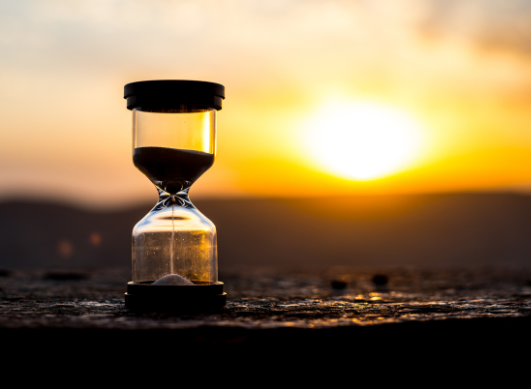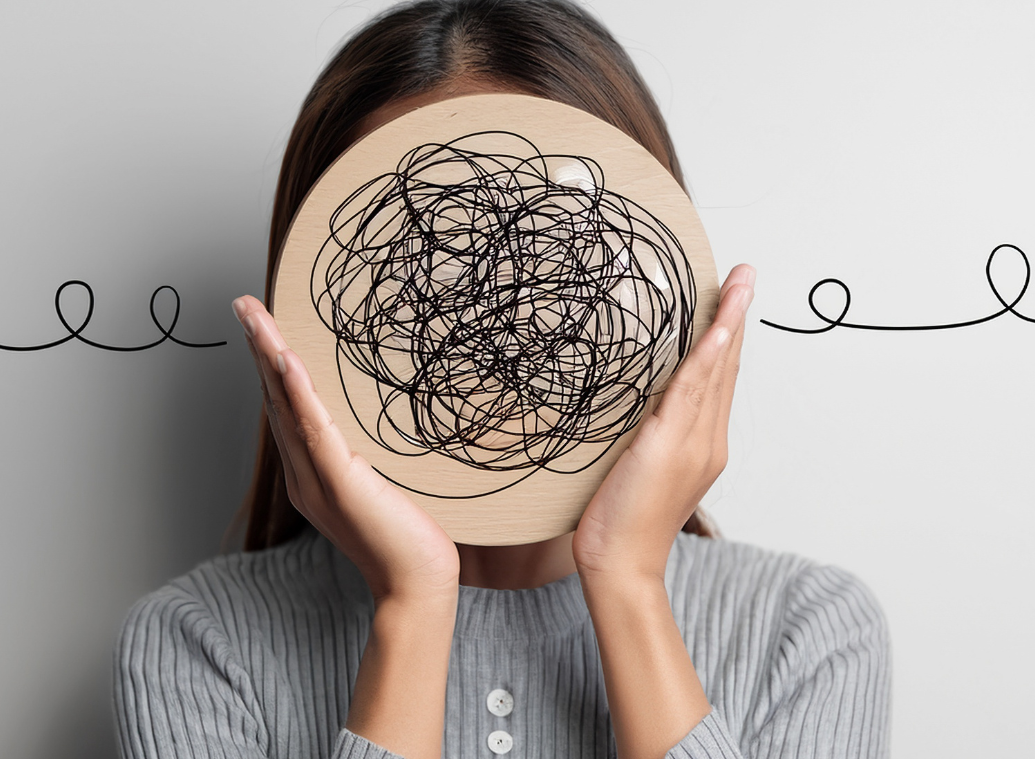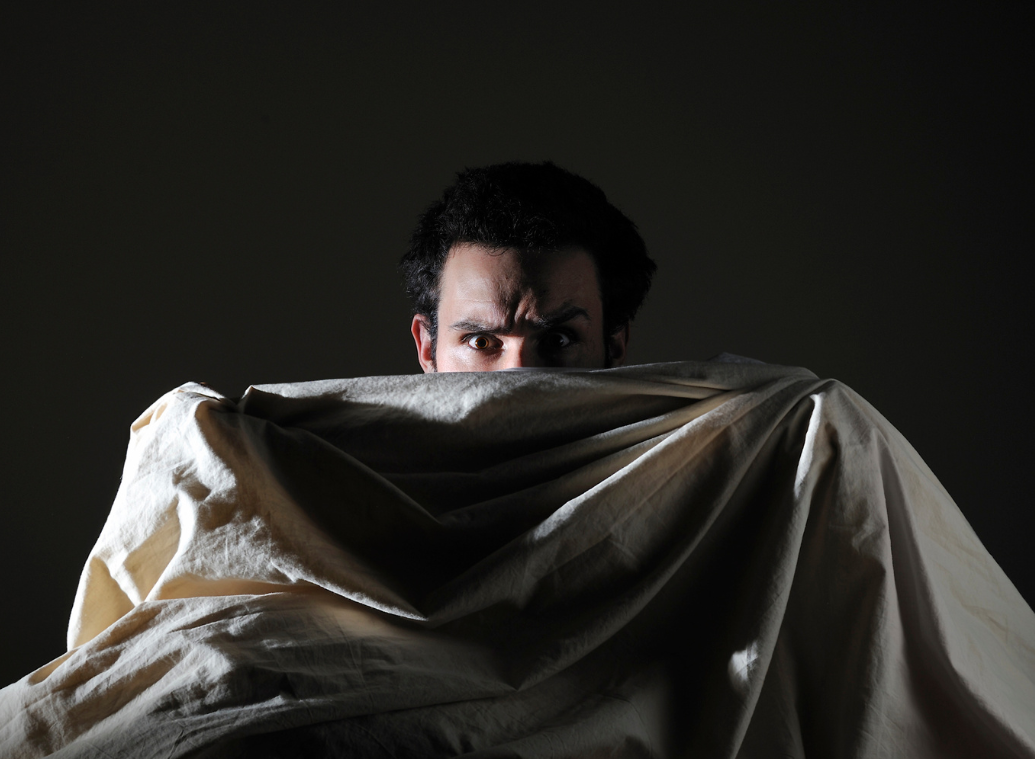- Home
- Forums
- General forums
- Living with anxiety and other mental illnesses
- Sharing my story to give others hope
Sharing my story to give others hope
- 22 views
- 0 support
- 2 comments
All comments

Unregistered member
My life also feels like a bit of a whirlwind. I didn't take anytime out between University and work, I just went straight from Dissertation, to final exams, to warehouse work, to graduation, to shop work, to better shop work, to team leader. Within one year. It's only seven months after Uni I am starting to wish I had taken at least one month out between University and work to enjoy myself and gain experience. This year I will have had a total of two weeks off (separately) to do nothing. I desperately feel like I need a break, but now can't because I'm trapped in work.
![]()
itgetsbetter
Good advisor
![]()
itgetsbetter
Last activity on 30/11/2020 at 17:32
Joined in 2016
461 comments posted | 420 in the Living with anxiety and other mental illnesses group
1 of their responses was helpful to members
Rewards
-
Good Advisor
-
Contributor
-
Committed
-
Explorer
-
Friend
Hi Hettie and welcome for sharing your story. Depression is a long, lonely, frightening place to be, but there really is a wonderful life out there for the taking.
I completely agree that Medication certainly doesn't solve your problems/issues but in my case they helped to calm my frantic mind enabling me to focus .It has been a long road even with being on medication. I too, felt that "I was better' and completely stopped taking them. Looking back, I knew it wasn't the right way . It really was a silly thing to do. During a phone call regarding another medical matter , my GP asked me how I was and when I told him how low etc I feeling and about coming off the medication I was advised to restart and make an appointment to see him. He actually told me "how glad he was that he had phoned me" I hate going to the GP as I always tell myself that "I can sort myself out". I was actually nursing pre children .
Talking is an absolutely marvelous "tool" . You can never talk enough; this site is a great place.
Looking after "me" was a hard lesson as I still put others first.
Doing things that I enjoyed, no matter how small/simple helped to release the "happy hormones". Like you I too suffered from panic attacks, which frightened me . I learned to focus on my breathing; something that I still do to this day.
Once, I felt stronger mentally I went outside my comfort zone and started working with young adults/ adults lead an independent life. A job I love; I am also a club leader for the same Charity.
I am in such a wonderful place in my life which, in my darkest days I could never, ever imagine.
I do still have down days, but who doesn't?
Headspace is a great free app to download. It helps you to reconnect with "you"
Thanks again for sharing Hettie.
Much love .xx
Articles to discover...
Subscribe
You wish to be notified of new comments
Your subscription has been taken into account








Unregistered member
Hello everyone
My real name is Heather (nickname Hettie) and I'm a 25 year old female from Warwickshire.
My family moved to a different town when I was very young and I was bullied throughout my primary and secondary school years. This has left me with ongoing (though now improving) issues with confidence and self belief. Of more consequence was the fact it lead me into a deep depression lasting many years throughout secondary school. This in turn led me to a type of anorexia. Initially I just stopped functioning - I couldn't eat, couldn't sleep, didn't really do anything other than go through the usual motions of school/hell. When I started losing a hell of a lot of weight,it started making me feel better, I liked looking skinnier, it was the one thing I liked at that moment that I could cling on to - so I did, big time. I only started eating again when I lost so much weight the doctors turned around and said if I didn't start eating again I would have to go into hospital and be tube fed. This terrified me and along with the help of a child psychologist I did, slowly, start to eat more and slower still, put some weight back on. This didn't solve the depression problem though, and I remained on antidepressants (prozac mainly) for about six years. My depression got so bad that for a while I was seriously on the brink of attempting suicide. But on one occasion when I was sitting there crying my heart out and planning how I would do it, my planning came round to thoughts of my parents. It was at that point I realised that however much I was suffering now, however miserable I felt, if I killed myself, I would be transferring those same feelings onto my parents. It was this, and only this, that was the reason I didn't try. I cared to much about my family and friends, but now I felt trapped, I didn't even have a way out, I just had to carry on.
My first stage of improvement came when I left school and started college. Finally I felt I wasn't being forced to do anything I didn't want to do and didn't enjoy. I was studying a subject that meant a lot to me and I genuinely wanted to do. It also put me in contact with new people sharing similar interests. I'm no longer in contact with many of my school friends, but some of the people I met at college are still like brothers and sister to me to this day (10+ years on). It was around this time I came off the Prozac, though I don't remember much about it.
On reflection, those two college years were probably the best two years of my life, though at the time there was much blood, sweat, tears and stress along the way.
University on the other hand, didn't go according to plan. On leaving college, I was debating between two courses/career choices to study at University. One was following my heart, one was following my head. I picked my heart. Turns out I picked the wrong one, but I didn't learn this until I was well into my first year at Uni. On my parents advice, I gave it one full year on that course, but a few months into the second year, I was determined it wasn't for me. Cue, partial breakdown, revolving around "what the hell am I going to do now?!". Anyway, the following year I transferred onto the first year of a brand new course (my second choice) and absolutely loved it. After three years (and a total of five years at Uni) I finally graduated in October 2015 with a Bachelor of Science Degree and a Higher Education Certificate. In case you haven't figured yet, I'm not particularly smart, just a perfectionist, with a fear of failure, who has to give 100% to everything, regardless of whether or not I actually like it.
Whilst living away from home to study at University, and during my second year, I had another, unexpected set back. I'd had previous experience with depression, but nothing too serious with anxiety. Suddenly out the blue, my anxiety levels went through the roof and I was having panic attacks at least once a day. I realised I was having panic attacks, but had no idea what was making me panic. And being able to recognise a panic attack and telling yourself "I'm just panicking, I'm not actually in any danger, stop being stupid", doesn't stop the physical symptoms of a panic attack. When one of these panic attacks caused me to leave one of my University exams, because I got myself so worked up I thought I was going to pass out, I knew I couldn't cope with it on my own. I was prescribed Escitalopram and started visiting the University councellor.
Gradually, I did start to get a handle on the panic attacks, teaching myself coping mechanism's to handle them and purchasing and reading many self-help books. I still have problem with high anxiety levels, but touch wood, haven't had a panic attack for nearly a year now. Due to this, and because the pressure revolved around University were now over, I was feeling a lot better and in March 2016 wen't to my GP and said I wanted to come off the Escitalopram. My GP surgery is a bit messed up at the moment and we don't actually have any permanent GP's, just locums. She said I shouldn't have been on the drug as long as I had (over two years), it should have been short term thing for a month or two. No GP had ever bothered to tell me this util about a year and half of being on it. And that time coincided with my dissertation and final exams, so I didn't think it would be a good time to come off it. I wish they had told me this as I was starting it, so I could plan when to come off. Anyway, the GP gave me a routine to follow that would reduce the dose gradually every two weeks, so within eight weeks, I would be off it. I managed this, and didn't get any negative psychological or emotional problems, except for feeling a bit emotionally sensitive, which I was expecting. I did struggle with a few physical problems however. 'Head Zaps' were something I had never heard of untll then, and are a very strange experience. Dizziness, generally feeling a bit off and weird, but nothing too bad. Until about three days after I took my final dose. I felt so ill I ended up going back to the GP. I was so weak and tired, I couldn't eat and had terrible nausea. I just generally feel really unwell. I saw another locum who was impressed I had manged to come off them in 8 weeks, as apparently this is a short term reduction plan. For someone like me who had been on the drug for 2+ years, I should have come off them over a period of 3+ months minimum. I had effectively done a crash course. But since it was just the physical symptoms that I was struggling with, she didn't want to put me back on them. I had effectively successfully come of them, this was just withdrawal symptoms caused by my body adjusting. I just had to ride it out, and they did settle down after a few days. She also explained I wasn't withdrawing in the classical sense of withdrawing from a drug due to addiction, these symptoms were caused by the chemicals in my brain having to adjust to functioning without the effects of the drug.
It's now July 2016, and I have been successfully off the Escitalopram for over a month. The physical side effects have stopped.
I could not be happier to be off the tablets. On reflection, I personally think drug use is appropriate for serious issues to help short term until the person can get more appropriate help. I don't think tablets are a long term answer. People need therapies such as Councelling, Psychiatry and Cognitiv Behavioural Therapies to teach people how to address and cope with issues, rather than covering them up. I understand however that the NHS is stretched to the limit and waiting lists for such therapies is huge, so drugs may help in the short term, until theses become available. But I think just giving someone a tablet and saying something effectively along the lines of "Take this tablet and all your problems go away" is wrong. It doesn't work like that for mental illness. Medical problems maybe, but no tablet can effectively cure a mental illness, though admittedly it might help to an extent. I hope I never have to go on tablets again, but will turn to talking therapies if I need help in the future. I wouldn't rule them out if I was desperate though. But coming off them is just so horrible and inconvenient, it would have to be worth it.
So finally I offer anyone struggling with a mental illness the following advice, based on what helped me:
1. Realise and accept when you can no longer cope with the issue on your own. Do not be afraid to seek professional help.
2. One of the hardest things for me was trying to keep how I felt to myself because I felt unable to talk to anyone about how I was feeling. If you do feel able to talk to someone, then do so. If you don't, try forums such as this, or try writing down how you are feeling in a journal, as if you were having a conversation with the journal. There are so many people in the population that now struggle with some sort of mental illness, it is incredibly common, do not let the condition make you feel alone, like you are the only person feeling the way you do. Everyone is fighting their own battle and everyone needs support.
3. Find a hobby you enjoy doing. For me, it was Horse Riding. I stated when I was 16 and continue it to this day. Having something that you enjoy doing and that you can improve and progress in can give you a much needed sense of satisfaction of worth. If it's a hobby that gets you out the house and teaches you skills such as time keeping, responsibility and leadership along the way, so much the better. But it doesn't have to be something particularly active (though lots of studies believe exercise to contribute to an improved mood). I also enjoy arts and crafts and am currently into this new adult coloring in phase.
4. Don't shut yourself in the house. Even if you don't want to. find excuses to force you to get outside and at latest see other people, if not interact with them. Go outside, go for a walk, do the food shopping, post a letter etc. Go for a coffee or day out with someone. The longer you stayed cooped up, the harder it will be to go outside.
5. Do not cause yourself more problems in an attempt to cope with the ones you already have. Stay away from excessive alcohol, smoking, gamboling, or spending on stuff you don't need. Don't give yourself more than one thing to have to overcome.
6. Finally, I personally believe animals have amazing healing properties. Always be kind and respectful to animals. But try spending time with animals. There is a new sort of therapy emerging that involves using animals as 'councellors' to some extent, particularly in the horse industry (equine assisted therapy). Talking to humans can be hard, talking to animals is often easier, and they won't judge. They can also teach us life skills and get us outside more. And stroking an animal can be relaxing in itself. Please do not buy a pet if you do not have the time or commitment to look after it. But do at least have a look into animal assisted therapies, or spend more time interacting with pets belonging to friends and family members.
There was no one thing that helped my recovery. I didn't just wake up one day feeling positive and optimistic. It takes time. I put most of my recovery down to having amazing support from my family and friends and pets and having horse riding as a hobby that gives me so much joy and satisfaction. I can also recommend the following self-help books.
1. Feel the fear and do it anyway - by Susan Jeffers.
2. Women who think too much - by Dr Susan Nolen-Hoeksema
3. Change your life with CBT - by Corinne Sweet
And for any young people:
4. 20 Something - 20 Everything - by Christine Hassler.
So where am I now. I'm in a much better place then I have been previously. I currently feel like I am going through a quarter life crisis though (the young person's equivalent of a midlife crisis). Having just finished University, I am working as a sales assistant in a shop, whilst I try to find answers to the questions "who am I", "what do I want to do" and "what are my current options"? This is causing me large levels of anxiety and stress. I'm very emotional at the moment, and have minor depressing feelings. I think part of it is the phase of life I'm in and part of it my body still adjusting to being of the Escitaloprma. Apparently it's common to have 'rebound' depression and anxiety after coming of the tablets. It's your bodies way of trying to convince you to go back on them. I was equally about two weeks into coming of them when I changed jobs and started a training course with the new employer. A stressful time and not great timing, but it's better than my previous job, and since I had started to come off, I thought I may as well continue, rather than try again another time. Equally, against my GP's advice, I have been completely honest with my employer about the effects coming off the tablets has had on me (particularly since I had to have two days off sick die to the withdrawal symptoms and am very emotionally sensitive at the moment). I am fortunate enough to have very understanding employers, and it turns out one of my managers has had similar issues. So they were very understanding and pleased I had been brutally honest with them, despite my GP's advice not to tell them. I think telling your employer is a very personal choice though, and dependent on the company and how they are likely to respond. I think it is beneficial, but not always the appropriate or best choice.
I am now at a crossroads though. My honestly clearly didn't effect my employers thoughts about me, because they have offered to train me to a team leader position (just nine weeks after starting the new job). I like the current job and feel incredibly lucky and honoured to be asked. But if I accept, my hours will increase to an extent that all I will really be doing is working or sleeping. I'm young, and want both time to enjoy myself, and to gain experience in other jobs more related to what I studied at University and want to do long-term. At the moment I have time to do volunteer work related to what I want to do and go part time in my current role. If I train for team leader, this would have to stop and I would have to choose between the two careers. I do not know what to do. I'm trying to think of a compromise.
Additionally I'm a long-term insomniac who is naturally nocturnal and takes hours to get to sleep. I've been so for many years, but now I'm working I'm having to try to retrain my body clock.
So...I'm Heather, and that's my story.